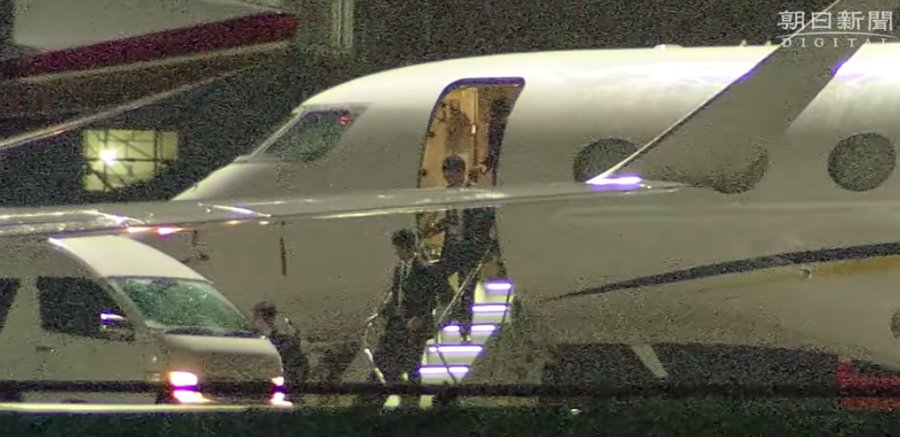Ghosn out at Nissan, still in at Renault, still in jail in Tokyo and facing more charges

When the corporate jet carrying Renault-Nissan-Mitsubishi CEO Carlos Ghosn landed at Tokyo Haneda airport on November 19, Japanese authorities had already taken position on the tarmac, waiting for him. Police and authorities representing Tokyo prosecutor's office boarded the plane to query Ghosn about financial improprieties, and ended up taking Nissan's chairman and CEO into custody. A few days later, on November 22, Nissan's board voted to remove Ghosn from both positions for what it classified as "significant acts of misconduct." The charges include understating his income in filings to the Tokyo Stock Exchange by at least $44 million, and misusing company funds.
Japanese police arrested Greg Kelly as well, the high-ranking Nissan exec said to have assisted Ghosn in the subterfuge. Ghosn and Kelly remain on Nissan's board until a shareholder vote is held to decide those positions. Kelly was Nissan's first American director, and the carmaker's former head of human resources.
In France, Renault's board voted to keep Ghosn in his positions, and has requested details from Nissan about the alleged improprieties. The board put Thierry Bolloré in the role of deputy CEO with all of Ghosn's powers while Ghosn is "incapacitated," and lead independent director Philippe Lagayette will act as temporary chairman. Nissan has since told Renault that it is investigating financial malfeasance at RNBV, the Amsterdam-based joint-venture company that oversees the alliance. Mitsubishi has watched from afar, only saying it will perform its own investigation, and could remove Ghosn.
Tokyo police can hold a suspect for 72 hours for initial questioning without charges. With the deadline looming, Tokyo prosecutors asked the court for, and were granted, a ten-day extension. If they choose, prosecutors can request another ten-day extension. Within 23 days, however, prosecutors either need to charge Ghosn and Kelly, or release them.
There are several charges that acquire more details by the day. The most serious accusation is that Ghosn understated his pay from 2011 to 2015 by half, claiming roughly $44 million in remuneration when he actually received around $88 million. Over the weekend, it came out that Japanese prosecutors could be working on new charges of Ghosn under-reporting his salary since 2015 by $27 million. A Japanese newspaper said Ghosn told Kelly in an email to lie on the financial statements.
One question is how Ghosn could have pulled off the scam without anyone except the recent whistleblower noticing. Ghosn doesn't file his paperwork; companies have departments that manage executive compensation and reporting, those reports overseen and audited by certified personnel. In a recent statement, Kelly said Ghosn's compensation was "carried out appropriately."
Hiroto Saikawa, Nissan CEO since April 2017 after serving as co-CEO with Ghosn for seven months, has been piling on Ghosn and Kelly all week. He called the two men "the masterminds," summarized the last eight years with, "I have to say that this is a dark side of the Ghosn era which lasted for a long time," and said he isn't sure whether Ghosn is "a charismatic figure or a tyrant." Ghosn had mentored Saikawa, and Saikawa was known as one of "Ghosn's Children."
Comments by the Tokyo prosecutor's office might provide a hint of context for Saikawa's dire utterances. A deputy chief prosecutor called falsifying income reports "one of the most serious categories of offenses... [A] heavier category of crime than insider trading." Still, Saikawa's declamations, and Nissan's haste, has "fueled open speculation that [Ghosn] was the victim of a coup by Saikawa," perhaps having something to do with acrimony from Renault-Nissan merger discussions reported on earlier this year. A different report pegs growing acrimony within Nissan Japan over Ghosn's seeming disinterest in the Nissan inspection scandal last year, an imbroglio that caused production lines to stop and that carried into this year.
Among the other charges, Automotive News Europe said "Nissan provided Ghosn with six houses, including residences in Tokyo and New York," and Ghosn had "other company-funded" domiciles in Beirut, Paris, and Amsterdam. Beyond that, Nissan said it discovered that company funds were used to buy an apartment in Rio de Janeiro, Brazil that Ghosn's sister had been living in and managing, and that Nissan had been paying the sister around $100,000 per year for advisory work. Another report said Nissan funds were used to pay the sister $60,000 for consulting on the purchase of the Rio apartment. Ghosn is said to have instructed the payments in 2002 - a year after taking the helm at Nissan - and the automaker said it had no evidence the sister had done any work for the company.
Japanese broadcaster NHK said Nissan funded the purchase and renovation of the dwellings in Paris, Amsterdam, Rio, and Beirut. Reuters reported that NHK said the "properties had no business purpose and were not listed as benefits in TSE filings." Ghosn has in the past discussed being based in Paris to run Renault, and in Amsterdam to manage the joint-venture company that oversees the alliance.
For the time being, Ghosn lives alone in a 52-square-foot cell in an unheated detention center, without any electronic devices, adhering to a regimented schedule that includes two baths a week, and supposedly living on rice and miso soup. As translated by ANE, the Tokyo correspondent for a French newspaper told a French radio show, "Ghosn is taking the arrest and investigation very badly and does not understand what has hit him."
Related News
